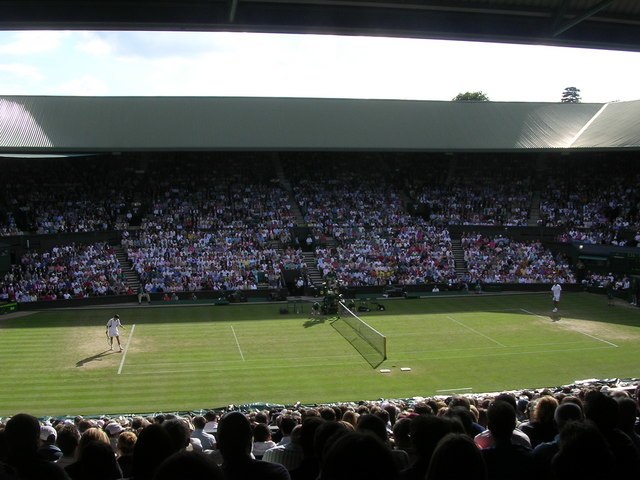Wimbledon preparing to re-invite Russian and Belarusian players
The All England Lawn Tennis Club (AELTC) could be braced to welcome the return of Russian and Belarusian players to Wimbledon, according to reports.
Following Russia’s invasion of Ukraine last year, both Russian and Belarusian players were banned from competing in Wimbledon. The decision was however not welcomed by tennis’s governing bodies, the WTA, ATP and ITF, who subsequently fined the competition and withdrew ranking points from the event, throwing it into jeopardy.
The decision by the AELTC was not reciprocated by any of the other Grand Slam organisers. In the French, US and Australian Opens, Russian and Belarusian players have been permitted to participate but under neutral flags.
Such a similar move could be set to follow at The Championships this summer, with the Daily Mail’s Matt Hughes indicating that organisers are preparing to make a U-turn on their position taken in 2022 and re-invite Russian and Belarusian participants.
The issue of players from Russia and Belarus continuing to play in the sport’s events is unlikely to disappear and extends much further than Britain’s flagship event. For the Lawn Tennis Association (LTA), who organise a series of grass-court Wimbledon warm-up events before the Championships each year, the challenge is even starker.
The likelihood of restrictions continuing for the duration of the war seems unlikely
The LTA faced a fine of £820,000 for refusing Russian and Belarusian participation in its events this year, a fine which it has already said has limited its ability to host Challenger-level events.
According to reports in the Guardian last month, the ATP and WTA have threatened to strip the LTA of their flagship warm-up events at the Queens’ Club and Edgbaston if any restrictions on participation continue. Such a move could leave a £20 million hole in the organisation’s finances and force significant cuts in its services longer-term.
The question of Russian and Belarusian participation on the tennis circuit has split many in the game. Seven-time Grand Slam champion John McEnroe questioned the move publicly last year, including after the women’s singles final, where Russian-born, Kazakhstan-representing Elena Rybakina won the Venus Rosewater trophy.
Others, such as BBC broadcaster and AELTC committee member Tim Henman, have highlighted the difficulty of the position the organisers have found themselves in. Many are concerned that the sight of the Princess of Wales, the AELTC’s royal patron, handing the winner’s trophy to a Russian or Belarusian player could be used for propaganda purposes in either of the countries.
The tennis circuit has also had to contend with the personal feelings and experiences of the game’s Ukrainian players, who have expressed their discomfort with having to face competitors from the two nations.
At last year’s US Open, Ukrainian player Maria Kostyuk refused to shake the hand of her Belarusian opponent Victoria Azarenka following a match, citing the war in her justification.
There has also been recent controversy during the WTA’s Indian Wells tournament, where Russian player Anastasia Potopova wore a Spartak Moscow shirt to her match with American Jessica Pegula, a move condemned by the tour’s number one player Iga Swiatek.
One former player, Sergiy Stakhovsky, who defeated eight-times Wimbledon champion Roger Federer on Centre Court in 2013, has been fighting in the Ukrainian military since last year and has urged tennis authorities to consider further restrictions on Russian and Belarusian participation.
With such personal and visceral dimensions at play, the sport finds itself in an extremely difficult position. But with many of the sport’s leading players, from former world number one Daniil Medvedev to recent Australian Open champion Aryna Sabalenka, from the two countries, the likelihood of restrictions continuing for the duration of the war seems unlikely.

Comments